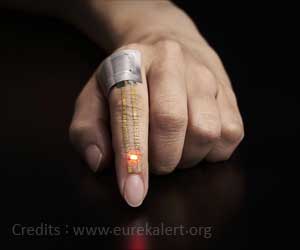New research study reveals that prolonged working hours in front of the computer can cause dry eye.
Computers have indeed revolutionized the office atmosphere by reducing the workload and providing for easy storage of huge amounts of data. Numerous studies have already demonstrated the disastrous effects of spending most of the day in front of the computers.
A new study now reveals that squinting at a computer screen can reduce the frequency of blinking by as much 50%, leading to an increased tendency to develop a condition called dry eye. Dry eye is an irritating, painful condition of the eye that can usually be treated with over-the-counter eye drops.The 10 study participants, who had a documented clear vision, were asked to squint at different levels ranging from no squinting to a 5 (barely squinting) to 50% (eyes closed about half-way) squinting. In order to monitor the act of blinking, two electrodes were attached to the lower eyelids, which were further connected to an electromyogram to monitor the electrical activity of the muscles. In addition, a videotape recording of the blinking act was also done.
The participants were provided with a chin and forehead rest that allowed them to relax while squinting. They were then asked to visualize a computer screen located two feet away, concentrating on a black dot in the center of the display. They listened to music while a changing pattern, which was driven by the music, moved around the black dot.
At the end of the study, the data obtained suggested that more the participants squinted their eyes, the less they blinked. A reduction in the frequency of blinking meant a considerable increase in an ache or burning sensation involving the eye. In short, sensations of dryness, irritation and tearing were reported more among those who blinked less often.
Infact the average blink rate (15 blinks/minute) reduced by as much as 7.5 blinks per minute when there was a 5 % squint to just 4 blinks per minute with a 50 % squinting. A slight increase in the level of squinting was sufficient to cut down the blink rate by half.
People generally tend to squint while reading a book or watching a computer display. This act can be voluntary or involuntary and serves to improve the eyesight by providing a clear definition of objects that are out of focus. In addition, it also reduces the glare and brightness under such circumstances.
Advertisement





